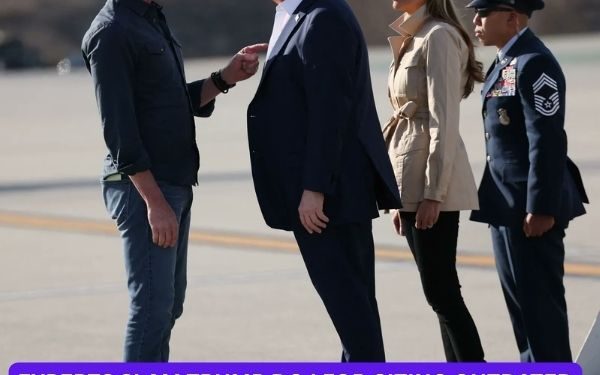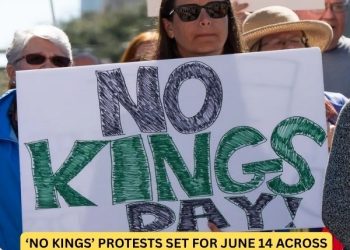Legal and counterterrorism experts are pushing back against the Trump Justice Department’s defense of deploying the National Guard in California without the governor’s consent—calling it both factually flawed and historically inaccurate.
The lawsuit, filed by California, challenges the unilateral deployment of federal forces during a protest in Los Angeles. The DOJ’s legal team defended its position in court Tuesday, citing early American uprisings like the Whiskey Rebellion and Shays’ Rebellion—an argument many experts say holds no legal water.
Related posts
This Article Includes
- 0.1 Related posts
- 0.2 CDC Warns of Deadly Superbug Surge in New York: Candida Auris Cases Climb
- 0.3 Study: Mass Deportations Could Cost California $275 Billion, Devastate Small Businesses
- 1 Experts Dismiss Historical Argument as “Useless”
- 2 Judges Grill DOJ: “Is the Court Powerless?”
- 3 Legal and Historical Pushback Mounts
“The police enterprise didn’t even exist during the Whiskey Rebellion,” said Chris O’Leary, a former senior FBI counterterrorism executive, in an interview with MSNBC’s Katy Tur.
O’Leary emphasized that the proper protocol would have involved local agencies, such as the LAPD and California Highway Patrol, escalating their request up to the governor before involving the National Guard. None of that happened.
Experts Dismiss Historical Argument as “Useless”
Elizabeth Goitein, co-director at the Brennan Center for Justice, criticized the DOJ’s historical references, noting that the laws invoked today didn’t even exist during the Whiskey or Shays’ Rebellions.
“That’s not a very useful argument,” she said. “The deployment of federal forces over a governor’s objection hasn’t happened since the Civil Rights era—and even then, it was under vastly different circumstances.”
She explained that during the 1960s, federal troops were deployed only when state governments refused to enforce court orders or protect civil rights activists—a stark contrast to the situation in L.A., where local police were already actively engaged.
Judges Grill DOJ: “Is the Court Powerless?”
In court, a panel of judges—Mark Bennett, Eric Miller, and Jennifer Sung—repeatedly questioned the DOJ’s stance. Judge Bennett asked whether a president could invoke the statute without any explanation or evidence, and still be free from judicial review.
The DOJ responded:
“That’s correct. If the statute is unreviewable, then it’s unreviewable.”
Even when pressed about the possibility of using a justification that isn’t part of the statute at all, DOJ lawyers maintained that courts couldn’t intervene.
Legal and Historical Pushback Mounts
The case is shaping up as a pivotal test of executive power, federalism, and civil liberties, with many legal observers criticizing the Trump administration’s reliance on outdated or irrelevant legal theories. The suggestion that early-American rebellions justify modern National Guard deployments has left constitutional scholars scratching their heads.
As the court considers its ruling, the case raises deeper questions about limits on presidential authority and the role of judicial oversight—especially when state sovereignty and civil unrest intersect.










